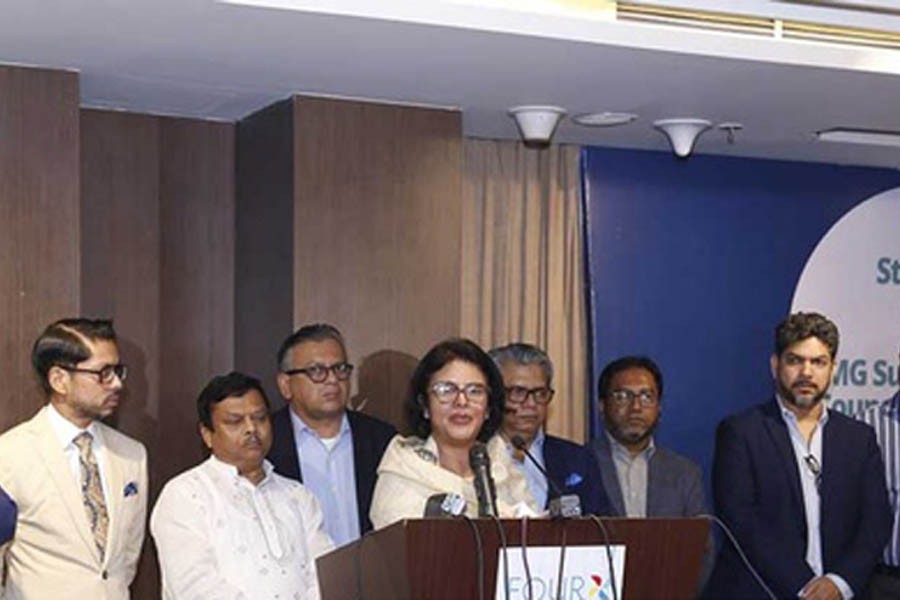
Published :
Updated :

The Accord on Fire and Building Safety in Bangladesh and the garment exporters’ body of the country have signed an agreement on establishing a council for the transition of responsibilities for issues like worker safety.
The ‘RMG Sustainability Council’ (RSC) is an “unprecedented” national supply chain initiative, the Accord and BGMEA said in a statement after the signing on Tuesday.
It is expected to “ensure a sustainable solution to carry forward the significant accomplishments” made on workplace safety in the country by “uniting” industry, brands and trade unions.
The council will be governed by a board of directors consisting of an equal number of representatives from industry, brands and trade unions.
It will operate within the regulatory framework of the laws of Bangladesh, closely cooperating with and supporting the regulatory functions of the government, reports bdnews24.com citing a statement.
It will retain all health and safety inspections and remediation, safety training and complaints handling functions currently carried out by the Accord, the statement said.
The Transition Agreement includes a number of elements:
>> Documented decisions, policies and protocols developed by the Accord will be carried over to the RSC as these have “proven effective and expedient”.
>> All existing transparency features of the Accord will be maintained, including full public disclosure of inspection results and remediation activities.
>> Factories currently covered by the Accord shall be carried over to the RSC retaining their remediation status and any outstanding remediation requirements as per the factory’s Corrective Action Plan.
>> All operations, staff, infrastructure, and functions of the Accord Office in Bangladesh will be transferred to the RSC.
>> The RSC will appoint a Chief Safety Officer, retaining the same independence, autonomy, authorities, and reporting requirements practiced by the Accord.
The Accord was set up by European brands to improve factory safety in Bangladesh after a garment factory complex collapsed in 2013, killing more than 1,100 people.
The five-year pact was originally due to expire in May 2018 but a longer transition period was agreed.
Low wages have helped Bangladesh build the world’s second-largest garment industry, behind China, with some 4,000 factories employing about 4 million workers.
Readymade garments are a mainstay of the economy, contributing almost 16 per cent of Gross Domestic Product and about $34 billion worth of exports in the last fiscal year ending in June 2019.
Bangladesh is among the world's largest exporters of apparel sold by Western companies like H&M, Adidas and Walmart, but the industry has been plagued by fires and explosions which have killed hundreds in recent years.
The Accord, signed by brands including H&M and Benetton, has been credited with improving factory safety in Bangladesh through inspections and funding.


 For all latest news, follow The Financial Express Google News channel.
For all latest news, follow The Financial Express Google News channel.